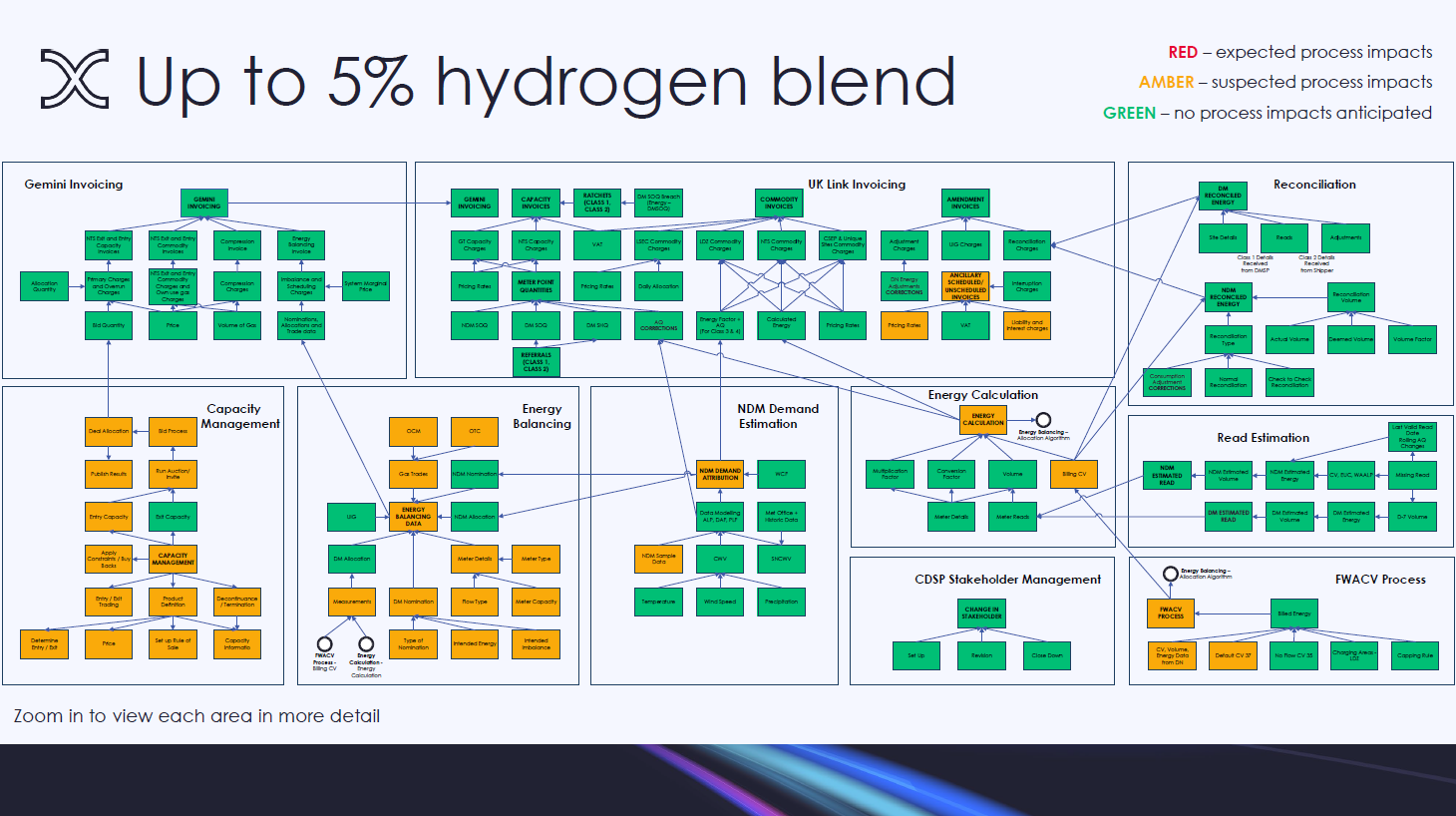Up to 5% hydrogen blend
Blending up to 5% hydrogen by volume helps to reduce the amount of carbon dioxide produced by the gas network.
This scenario assumes small amounts of blending across the network within the framework of the current flow weighted average CV process (FWACV).
Low impact on CDSP systems
- Introducing hydrogen at this level represents a small-scale, low-risk step towards decarbonisation, with minimal impact on CDSP systems.
- Provided the CV of the blended gas remains within FWACV tolerances, only limited system changes are expected.
- If differentiation between blended and non-blended gas is required, new CDSP data items would need to be developed.
- Overall, this scenario is a manageable transition that can be delivered within existing network and billing frameworks.
RAG matrix
- RED – expected process impacts
- AMBER – suspected process impacts
- GREEN – no process impacts anticipated
Note: This assessment does not define the scale or complexity of impacts.
| CDSP Process | RAG Status |
| Capacity Management | |
| Demand Estimation | |
| Flow Weighted Average Calorific Value (FWACV) | |
| Energy Balancing | |
| NDM Reconciliation | |
| Supply Meter Point Quantities | |
| Energy calculations | |
| Read estimations | |
| Corrections | |
| Referrals | |
| Change of Stakeholder | |
| Commodity Invoice | |
| Capacity Invoice | |
| Amendments Invoice | |
| Gemini invoicing | |
| DM Reconciliation | |
| Ratchets | |
| Scheduled and unscheduled invoices |
Context diagram
-
 Up to 5% hydrogen blend context diagram
Up to 5% hydrogen blend context diagramA high-level visualisation outlining the scope of changes posed to systems and processes, in the up to 5% hydrogen blend scenario.
PDF, Last Updated 7/08/2025, 139.0 KB
More information
If you would like more detailed information about the four decarbonisation scenarios, and the potential affects they could have on the CDSP central systems and processes, please email us at decarbonisation@xoserve.com.
Related links
More information
Contact us if have any questions or would like to know more about the four decarbonisation scenarios.
